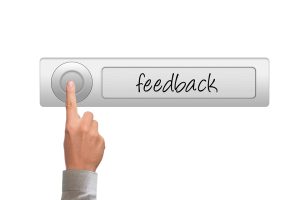The Ultimate Guide to Building a Successful Sales Strategy
Introduction
In today’s competitive business world, developing a successful sales strategy is critical to the growth and sustainability of your business. A well-crafted sales strategy can help your business increase revenue, expand your customer base, and stay ahead of the competition. This article will provide a comprehensive guide on how to build a successful sales strategy that will help you achieve your business goals.
Understanding Your Customers
An essential step in building a successful sales strategy is to understand your customers. Your customers are the lifeblood of your business, and understanding their needs, preferences, and buying behavior is crucial to your success. Start by identifying the characteristics of your target audience, including age, gender, income, and location.
Once you have a clear understanding of who your customers are, you can tailor your sales strategy to meet their needs. This could involve creating targeted marketing campaigns, offering personalized product recommendations, and providing exceptional customer service.
Setting Sales Goals
To build a successful sales strategy, you need to set clear and measurable sales goals. Your sales goals should be specific, measurable, achievable, relevant, and time-based. Start by assessing your current sales performance and identifying areas for improvement. Use this information to set realistic sales targets for your business.
Your sales goals should be aligned with your overall business objectives. For example, if your goal is to increase revenue by 20%, your sales team should be focused on identifying new sales opportunities and converting leads.
Identifying Your Unique Selling Proposition
Your unique selling proposition (USP) is what sets your business apart from the competition. It is the reason why customers should choose your products or services over your competitors. A strong USP should be clear, compelling, and relevant to your target audience.
When identifying your USP, consider your business’s strengths, competitive advantages, and value proposition. Use this information to craft a compelling message that resonates with your target audience.
Developing a Sales Process
A sales process is a set of steps that your sales team follows to convert leads into customers. A well-defined sales process can help your team be more productive and efficient, resulting in increased sales and revenue.
Start by mapping out your sales process from lead generation to closing the sale. Identify the key activities and milestones that need to be achieved at each stage of the process. Create a structured process that guides your team through each step, including prospecting, lead nurturing, and closing the deal.
Training Your Sales Team
Your sales team is the heart of your business. Investing in their training and development is critical to the success of your sales strategy. Provide your team with comprehensive training that covers the sales process, product knowledge, and sales techniques.
Encourage a collaborative and supportive sales culture that fosters team spirit and encourages teamwork. Ensure that your sales team receives regular feedback and coaching to help them improve their skills and performance.
Measuring Sales Performance
To evaluate the effectiveness of your sales strategy, you need to measure your sales performance regularly. This will help you identify areas for improvement and make data-driven decisions to optimize your sales process.
Metrics that you should be tracking include sales revenue, conversion rates, average deal size, and customer acquisition cost. Use this information to identify trends and patterns, and make data-driven decisions that optimize your sales strategy.
Conclusion
Building a successful sales strategy may seem daunting, but if you follow the steps outlined in this guide, you can create a comprehensive and effective sales strategy that delivers results. Remember, it’s essential to understand your customers, set clear sales goals, identify your USP, develop a sales process, train your sales team, and measure sales performance regularly.
FAQs
Q: What is a sales strategy?
A: A sales strategy is a plan that outlines how a business will generate leads and convert them into customers. It includes tactics and processes for achieving sales targets and growing revenue.
Q: How do you define your target audience?
A: To define your target audience, you need to identify the characteristics of your ideal customer. This could include demographics, psychographics, and behavior patterns.
Q: Why is it essential to measure sales performance?
A: Measuring sales performance helps identify areas for improvement, optimize sales processes, and make data-driven decisions that enhance performance.
Q: What is a unique selling proposition?
A: A unique selling proposition is what sets your business apart from the competition. It is the reason why customers should choose your products or services over your competitors.
Q: How do I develop a sales process?
A: To develop a sales process, start by mapping out your sales process from lead generation to closing the sale. Identify key activities and milestones that need to be achieved at each stage of the process. Create a structured process that guides your team through each step.






